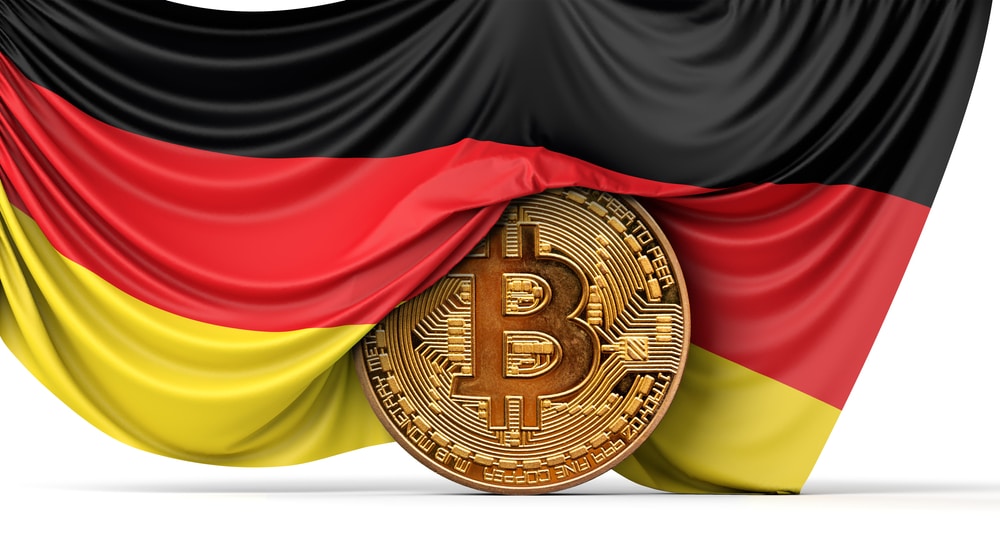
German Banks Gradually Adopting Cryptos for Institutional Investors
The uncertainty on cryptocurrency stability has convinced conventional banks to deploy a cautious approach to integrate digital assets into their portfolio. German banks have held this perspective on the sector’s uncertain future.
German Banks Consider Digital Assets as a Game Changer
Recently, German banks are gradually relinquishing the tough stance on cryptos amidst concern that they may miss out on the game-changing potential of digital assets. In the past, the bank’s executives have portrayed cryptos as too speculative, risky, and unregulated to integrate into the portfolio.
The reluctance by banks to embrace cryptos left foreign institutions and no brokers joining crypto fintech firms in offering trading, custodial, and tokenization services. Firms such as Trade Republic, Bitpanda, and Bison App emerged to fill the void while offering business account management, card issuance, custodial, and automated teller machine services (ATMs).
Swapping Certificate Trading for Crypto Assets
Trading crypto assets directly within German banks has been impossible. Also resisting the urge, Comdirect, Deutsche Kreditbank, and ING were digital assets, even when the trader would engage brokers. The banks would only allow clients to invest in Bitcoin and altcoins via certificates replicating the crypto assets.
The stance by German banks is changing on cryptos as Deutsche WertpapierServiceBank (Dwpbank) initiated the wpNex crypto trading in March 2023. The platform yields a unified platform for 1200 commercial and saving banks to access the crypto industry.
With barely two months since the Dwpbank platform was launched, it is a short timeframe to ascertain how the affiliate banks will embrace it. The primary concern is whether Dwpbank will live to fulfill the expectation.
Dwpbank chief executive Heiko Beck admitted to the active discussion with DZ Bank about the platform. He indicated that besides the pilot initiative for customer MLP banking, the platform is in advanced talks with other interested banks.
Are Large Commercial Banks Serving Institutional Clients
DWX, in its recent disclosure, admitted that Deutsche Bank, as the major shareholder, is scouting for an expanded scope into the crypto business, allowing investors access the digital assets. In April, the asset management group disclosed its previous partnership with Galaxy Digital to offer exchange-traded products derived from cryptos.
The group intends to leverage the partnership by introducing other digital solutions to boost investors’ access to blockchain-based applications and cryptos. In the April LinkedIn post, DWS chief executive Stefan Hoops reiterated that most crypto coins have inherent vulnerabilities that make them worthless and fraudulent products.
Hoops emphasized the DWS group’s belief in successful tokenization of the economy as to cause substantial disruption of the existing market structure. The move is propelled by the anticipation that digital assets remain unabated. Nevertheless, DWS would prioritize the development of safe access to the cryptos rather than displaying schadenfreude whenever clients lose their wealth to dodgy entities.
German Banks Target Institutional Crypto Investors
Hoops clarified that Galaxy Digital’s cooperation is attracting interest from traditional financial institutions. However, the bank only proposes accepting institutional investors comprising companies and funds rather than retail investors.
Recently, Commerzbank joined DekaBank in applying for crypto custody licenses. The application of the two banks is pending approval by the Federal Financial Supervisory Authority (BaFin). Like DWS, the two banks prioritize offering crypto for institutional clients.
DekaBank recently demonstrated its advanced initiative to offer digital securities on its internally developed blockchain technology. The bank targets to introduce a tokenization platform next year. The revelation coincides with the German Savings Banks Association ruling out the provision of cryptos to retail clients.
Similar to Commerzbank, Deutsche targets crypto custodial solutions for institutional clients. It implies that investment and pension funds will access its platform to facilitate crypto storage. The bank ruled out expanding the platform to extend the crypto products to corporate and private clients.
Cooperative and Regional Banks’ Freedom to Offer Digital Assets
Deutsche Bank admitted the challenges of launching digital assets given the restrictions imposed by the regulatory jurisdictions. Regional banks comprising savings, small and mid-sized cooperative financial institutions such as Volksbanken and Raiffaisenbanken enjoy more freedom.
The cooperatively organized institutions utilize simple business models that involve mobilizing deposits and lending to local households and enterprises. Their simplicity allows them to embrace cryptos gradually.
The National Association of German Cooperative Banks admitted to formulating crypto trading and custody offers for the member banks. The position is inspired by the awareness that cooperative banks could potentially lock themselves from the market demand though cryptos are termed volatile and risky investment assets.
Judging the German bank’s entry into the crypto industry is still early. However, many exercise their rights as independent legal entities to offer crypto trading and custodial services.




